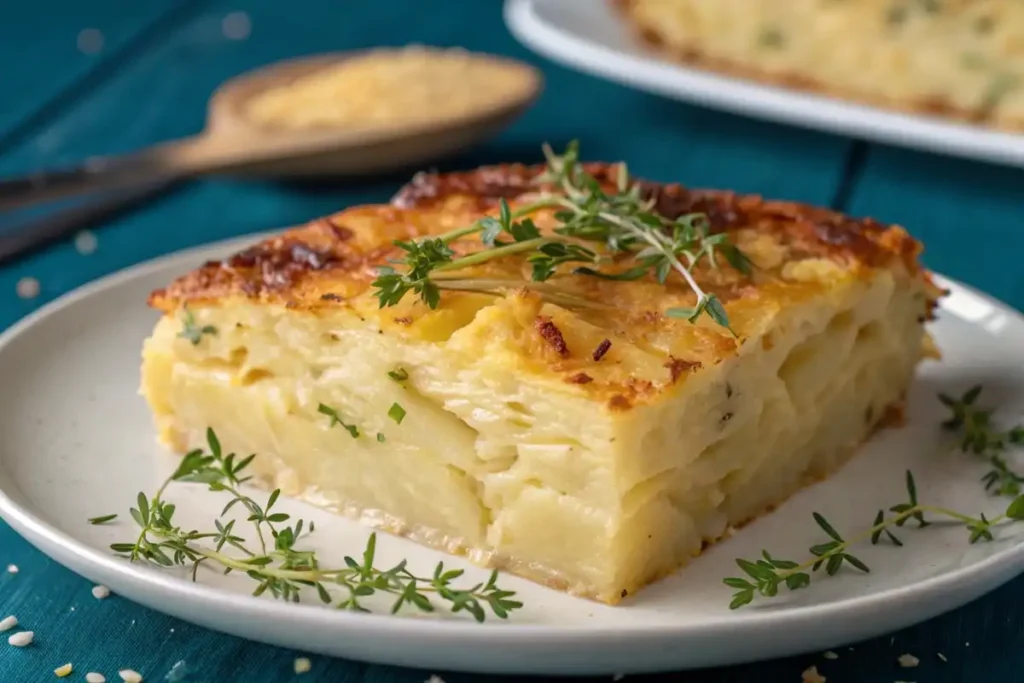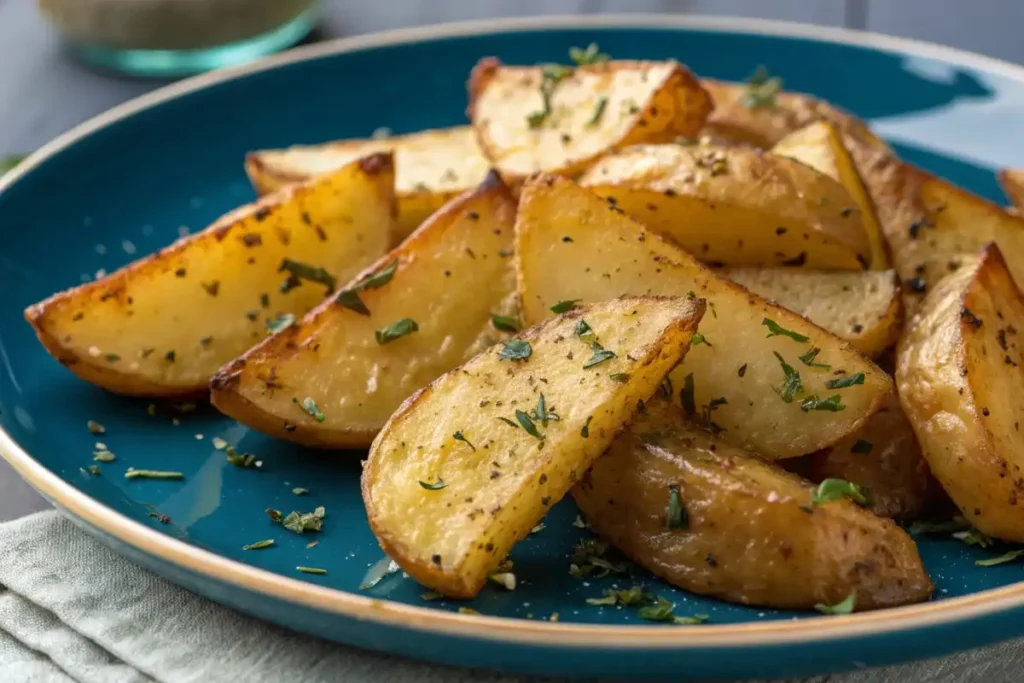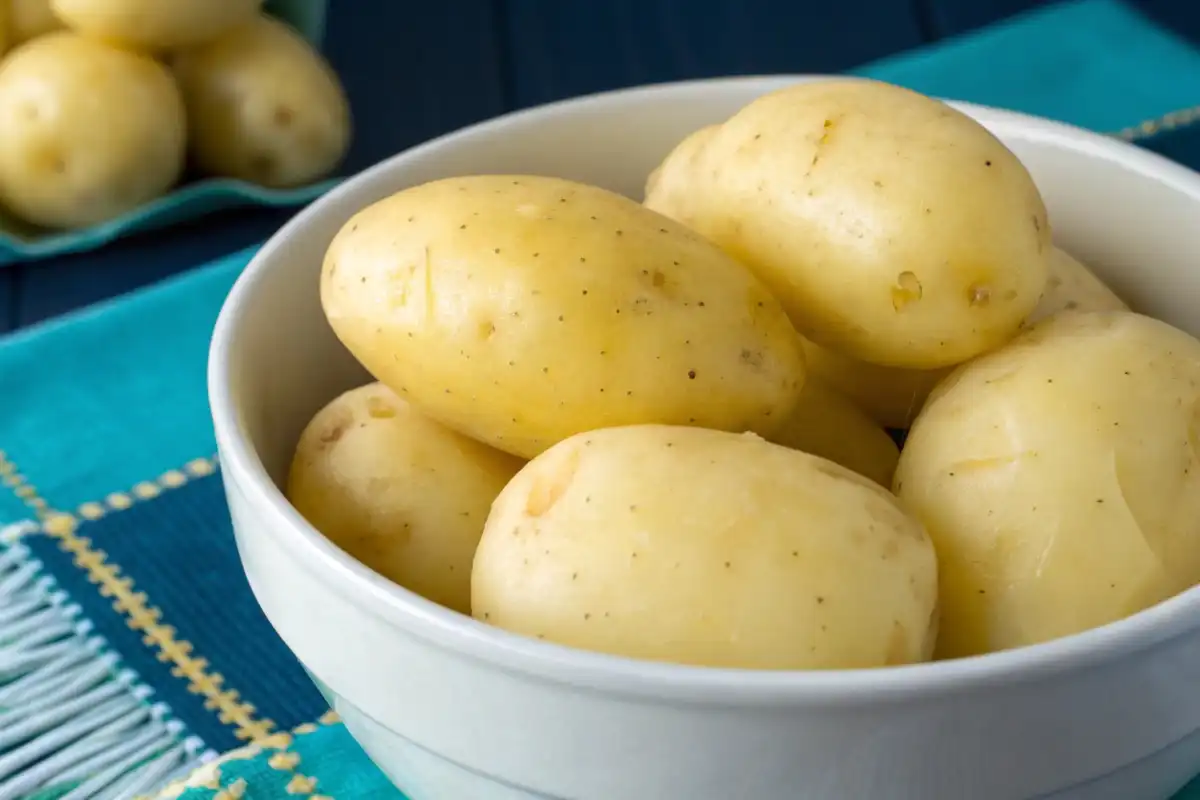At the present time, many people wonder: Can Jews eat potatoes during Passover? This question often arises because Passover food restrictions can feel complicated. However, potatoes have a long history of acceptance on Passover tables. Therefore, they play a vital role in holiday menus. In addition, potatoes are versatile, filling, and easy to prepare.
Furthermore, Can Jews eat potatoes during Passover? is a question with a clear answer: yes, they can. Because potatoes are not grain-based and do not ferment into chametz, they fit comfortably into Passover traditions. In fact, these humble tubers can appear in numerous Passover dishes. For instance, they star in potato kugel, mashed potatoes, roasted potatoes, and even in unique new recipes designed to meet modern tastes.
Why Can Jews eat potatoes during Passover? Matters to Observers
Can Jews eat potatoes during Passover? matters because food rules shape cultural identity. During Passover, Jewish communities worldwide refrain from consuming chametz, which includes fermented grains like wheat, barley, oats, rye, and spelt. Because these grains are off-limits, creative cooks look for alternatives to maintain a balanced diet. In addition, potatoes provide essential carbohydrates without violating these rules.
To illustrate, the Seder meal often includes symbolic foods and traditional favorites. In the meantime, potatoes serve as a filling alternative that helps families stick to dietary restrictions.
Furthermore, potatoes absorb flavors easily and pair well with lean proteins, fresh vegetables, and holiday staples. Hence, they ensure variety and comfort during a time when culinary options might feel limited.
Understanding Passover Dietary Restrictions: Can Jews eat potatoes during Passover?
Before addressing Can Jews eat potatoes during Passover?, let’s explore Passover dietary restrictions. Jewish law forbids chametz, foods made from certain grains that have leavened.
Because leavened bread symbolizes the haste with which the Israelites left Egypt, avoiding chametz pays tribute to that historical moment.
Therefore, potatoes, which are vegetables, remain permitted. In contrast, grains that can ferment are removed from the menu.
This leaves room for naturally gluten-free foods like potatoes. Because potatoes are not grain and cannot become chametz, they remain an excellent solution. Eventually, they emerged as a culinary champion of Passover cuisine.
The Role of Potatoes in Traditional Passover Cuisine: Can Jews eat potatoes during Passover?
For generations, potatoes have helped Jewish families create hearty and flavorful Passover dishes.
Because meat, poultry, fish, and vegetables are allowed, potatoes serve as the starchy anchor to many meals. In fact, their neutral taste and adaptable texture make them beloved.
For instance, consider potato kugel, a baked casserole popular on Shabbat and Passover tables. Another example is mashed potatoes, whipped until fluffy and served as a side to roasted chicken or brisket.
Roasted potatoes with fresh herbs also bring a fragrant, comforting element. In addition, potato starch replaces flour in some Passover baking recipes, ensuring that desserts remain on the menu.
How Can Jews eat potatoes during Passover? Aligns with Cultural Traditions
Can Jews eat potatoes during Passover? fits perfectly with cultural traditions. Many Jewish communities in Eastern Europe turned to potatoes when bread was forbidden. Potatoes stored well through harsh winters and remained accessible even when fresh produce was scarce.
Hence, potatoes became essential for Jewish cooks seeking to nourish their families during Passover.
Furthermore, cultural recipes passed down through generations rely on potatoes for substance and depth.
Because these recipes connect current celebrations with ancestral traditions, potatoes carry symbolic weight. They represent resilience, resourcefulness, and the ability to create delicious meals under strict dietary laws.
Celebrating Creativity: Can Jews eat potatoes during Passover? in Modern Cuisine
At the present time, modern Jewish cooks innovate continuously. While the simple question Can Jews eat potatoes during Passover? yields a “yes,” creative minds go beyond basic boiled potatoes.
For example, they experiment with potato-based gnocchi made from Passover-friendly ingredients or incorporate mashed potatoes into matzo-based dumplings.
In addition, some families have introduced global flavors, blending potatoes with Mediterranean herbs or Middle Eastern spices.
Therefore, Passover menus can feel global and diverse, all while respecting tradition. This creativity ensures that potatoes never become boring. Instead, they serve as a canvas for culinary artistry.
Selecting the Best Potatoes for Passover: Can Jews eat potatoes during Passover?
Can Jews eat potatoes during Passover? Yes, but which varieties taste best? Potatoes differ in texture and flavor.
Russet potatoes yield fluffy interiors and create perfect mashed potatoes. Yukon Gold potatoes have a creamy texture and mild, buttery taste. Red potatoes hold shape well, making them ideal for salads or roasted wedges.
In addition, proper storage extends potato freshness. Keep them in a cool, dark place, away from direct light.
Avoid potatoes with green spots, as they may taste bitter. Because you want the best possible dishes, select fresh, firm potatoes for your Passover meals. This extra care enhances taste and ensures that your Passover table delights every guest.
Cooking Techniques: Can Jews eat potatoes during Passover? to Create Versatile Dishes
When considering Can Jews eat potatoes during Passover?, think about cooking techniques. In addition to traditional kugels, consider these methods:
- Roasting:
Cut potatoes into wedges, drizzle with olive oil, add herbs and bake until crisp. - Mashing:
Boil peeled potatoes until tender, then mash with oil or chicken fat (schmaltz) and seasoning. - Grating:
Create potato pancakes (latkes) using grated potatoes, eggs, and seasonings, adjusting for Passover rules. - Boiling or Steaming:
Keep it simple. Serve boiled potatoes with fresh parsley and a dash of salt.
Because these techniques offer variety, potatoes can appear at multiple meals without becoming repetitive.

Nutritional Benefits: Can Jews eat potatoes during Passover? and Health Considerations
Can Jews eat potatoes during Passover? not only for tradition and taste but also for nutrition.
Potatoes provide essential carbohydrates, dietary fiber, potassium, and vitamin C. This nutritional profile supports overall health during a holiday that sometimes limits food choices.
While Passover often includes rich, heavy meals, potatoes can balance the plate. For example, pairing roasted potatoes with lean protein and steamed vegetables creates a balanced meal.
In addition, moderate portion sizes help maintain energy and digestion. Therefore, potatoes not only answer the dietary question but also promote a balanced holiday menu.
Below is approximate nutritional data per 1 medium potato (about 150g):
| Nutrient | Amount per Serving |
|---|---|
| Calories | ~110 kcal |
| Carbohydrates | ~26 g |
| Protein | ~3 g |
| Fat | ~0 g |
| Dietary Fiber | ~2 g |
| Vitamin C | ~30% DV |
| Potassium | ~18% DV |
| Iron | ~4% DV |
Note: Percent Daily Values (DV) are approximate.
A Classic Recipe: Passover Potato Kugel
Because Can Jews eat potatoes during Passover? is clear, let’s highlight a classic dish: potato kugel. This dish combines grated potatoes, onions, eggs, and seasonings. It bakes into a golden, crispy delight. Potato kugel often appears at Passover Seders and family gatherings. It pairs perfectly with roasted chicken or brisket.
Ingredients (Serves about 8)
- 3 pounds Yukon Gold or Russet potatoes, peeled
- 2 medium onions, peeled
- 4 large eggs, lightly beaten
- 1/4 cup vegetable oil (or schmaltz)
- 1 1/2 teaspoons kosher salt (adjust to taste)
- 1/2 teaspoon ground black pepper (adjust to taste)
Instructions
- Preheat oven to 375°F (190°C).
- Grate potatoes and onions using a box grater or food processor.
- Place grated mixture in a clean towel and squeeze out excess moisture.
- In a large bowl, combine potatoes, onions, eggs, oil, salt, and pepper. Mix well.
- Pour mixture into a greased 9×13-inch baking dish.
- Bake for about 60-70 minutes, until the top is golden and crispy.
- Let rest for 10 minutes before slicing and serving.
In addition, consider adding fresh herbs like parsley or dill. This variation adds complexity and brightness. Because potato kugel embraces tradition and flavor, it reinforces the role of potatoes in Passover cuisine.

Pairing Potatoes with Other Passover Foods: Can Jews eat potatoes during Passover?
When planning Passover menus, consider how potatoes complement other allowed foods:
- Matzo:
Potatoes provide softness and moisture, balancing the crunch of matzo. - Vegetables:
Combine roasted potatoes with carrots or asparagus for a colorful platter. - Proteins:
Serve mashed potatoes with roasted chicken or fish for a satisfying, balanced meal. - Soups and Stews:
Add diced potatoes to hearty chicken soup or vegetable broth. They thicken and enrich the dish.
By mixing and matching, you ensure that potatoes enhance your Passover experience rather than overpowering it.
Beyond the Seder: Can Jews eat potatoes during Passover? All Week Long
At the Seder, symbolic foods highlight the story of Exodus. In the meantime, the rest of Passover week often calls for practical meals. Because bread, pasta, and other grains are absent, potatoes step in. They form the base of breakfasts, lunches, and dinners. This ensures that families remain full and happy.
For breakfast, consider a potato-based frittata with leftover vegetables. At lunch, enjoy a potato salad dressed with oil and lemon juice. For dinner, mashed potatoes or a potato gratin made with Passover-approved ingredients keep things interesting. Eventually, this ingredient proves indispensable, answering the question Can Jews eat potatoes during Passover? with a firm yes.
Dietary Adaptations: Can Jews eat potatoes during Passover? for All Lifestyles
Can Jews eat potatoes during Passover? also applies to various dietary needs. Potatoes are naturally gluten-free and vegan when prepared simply.
They adapt well to many eating styles. Because Passover is already restrictive, versatile foods like potatoes help accommodate guests with dietary limitations.
For individuals who avoid animal products, use plant-based oils instead of schmaltz. For those seeking healthier fats, a drizzle of olive oil and fresh herbs can lighten the dish. At the same time, potatoes remain mild and welcoming to countless seasonings.
Exploring Potato-Based Desserts? Can Jews eat potatoes during Passover? Inspires Creativity
At first glance, potato-based desserts may sound unusual. However, some Passover dessert recipes use potato starch to create fluffy cakes or delicate cookies.
Because potato starch helps mimic flour’s texture, it opens the door to sweet treats despite grain restrictions.
For instance, consider a chocolate torte bound with potato starch. In contrast to grain flour, potato starch creates a light crumb without chametz.
This innovation proves that Can Jews eat potatoes during Passover? goes beyond savory dishes. It extends into the sweet world, offering something for every palate.
Balancing Tradition with Modern Needs: Can Jews eat potatoes during Passover?
As times change, Jewish communities worldwide adapt. Can Jews eat potatoes during Passover? is a question answered by tradition but also influenced by modern preferences.
Health-conscious individuals might reduce the oil in potato dishes. Busy families may rely on quick potato recipes to simplify cooking. In addition, new cooking tools like air fryers and pressure cookers help produce great potato dishes quickly.
Regardless of method, potatoes remain an anchor of Passover cuisine. They balance tradition and innovation, connecting past generations with present-day tastes. Because this link matters, potatoes hold a cherished place on the Passover table.
Incorporating Global Flavors: Can Jews eat potatoes during Passover? Around the World
Jewish communities exist worldwide, and local culinary influences affect Passover menus. Because potatoes grow in many climates, they appear in various global Jewish cuisines.
For instance, Sephardic communities might incorporate potatoes into spicy stews. Meanwhile, Ashkenazi communities rely on potato kugel as a classic dish. In addition, Jewish families in Latin America may blend local spices with potatoes for a unique twist.
This global perspective proves that potatoes transcend borders. They connect Jewish communities across continents, ensuring that Can Jews eat potatoes during Passover? leads to diverse, culturally rich menus.
Addressing Common Misconceptions
Some people assume that Passover diets must be bland or repetitive. In contrast, potatoes prove otherwise.
Because they serve as a culinary blank canvas, cooks can experiment with textures, seasonings, and cooking methods. This creativity disproves the notion that Passover eating feels restrictive.
Others wonder if potatoes carry any special Passover-related status. They do not. They are simply a permitted vegetable, well-loved and widely used.
Eventually, this acceptance makes them a go-to ingredient, ensuring that holiday meals remain both meaningful and satisfying.
FAQs
Q: Are sweet potatoes allowed on Passover?
Yes, sweet potatoes are also allowed. Like regular potatoes, they are not chametz and can be eaten freely.
Q: Is there a difference between Ashkenazi and Sephardic Passover potato traditions?
Both communities use potatoes, but recipes differ. Ashkenazi traditions include kugels and latkes, while Sephardic recipes might feature spiced potato dishes.
Q: Can I use potato starch in baking during Passover?
Yes, potato starch is a common flour substitute on Passover. It helps create cakes, cookies, and other treats without chametz.
Q: What is potato kugel made of?
Potato kugel typically consists of shredded potatoes, onions, eggs, and oil. Sometimes, cooks add seasonings like salt, pepper, and herbs. The mixture bakes into a soft, savory casserole that complements a variety of Passover and Shabbat meals…
Q: Can you eat kugel on Passover?
Yes, you can enjoy potato kugel during Passover. Since potato kugel contains no chametz, it is often served at Seder meals. Passover potato pie, a variation of kugel, also fits perfectly into a holiday menu…
Q: What is white potato pie made of?
White potato pie may refer to a sweet or savory dish. In a savory context, it often includes shredded or mashed white potatoes, eggs, butter or oil, and seasonings…
Q: Can Jews eat potatoes during Passover?
Yes, they can. Potatoes are not chametz and are widely accepted as a Passover staple.
Q: Do I need special certification for potatoes on Passover?
No special certification is usually needed for fresh, whole potatoes. Just ensure they are not processed with restricted ingredients.
Q: Can I fry potatoes during Passover?
Yes, frying is allowed. Just ensure the oil and any added ingredients are Passover-friendly.
Conclusion
In conclusion, Can Jews eat potatoes during Passover? The answer is a resounding yes. Because potatoes are not chametz and remain a key part of Passover cuisine, they allow for hearty, flavorful meals throughout the holiday.
Therefore, this simple vegetable supports tradition, nutrition, and culinary creativity all at once.
To sum up, potatoes have long stood as a reliable and flexible ingredient during a time of dietary limitation. Eventually, they evolved into iconic dishes like potato kugel, proving that limited ingredients need not mean limited flavor.
Enjoying potatoes during Passover links past generations to present tables, ensuring that holiday meals honor tradition and celebrate innovation.
